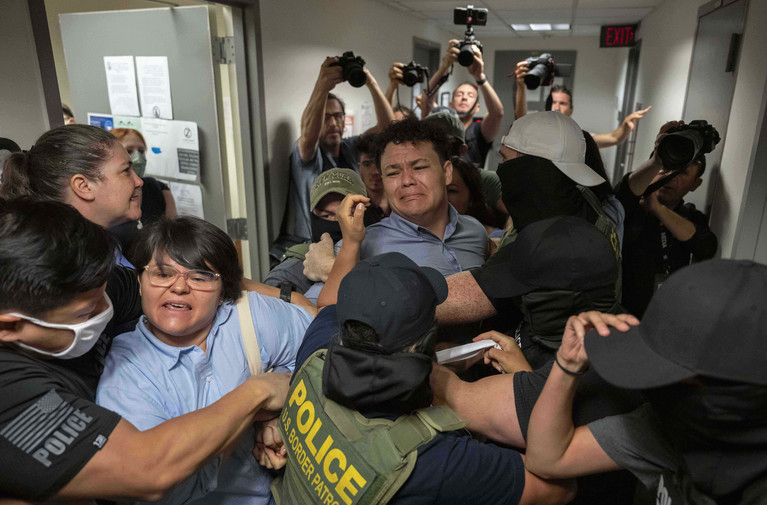Sacramento, CA – August 21, 2025 – A San Bernardino lawmaker has introduced draft legislation aimed at curbing federal immigration arrests in California state courthouses, a practice critics argue undermines access to justice and public safety. The proposed bill, announced by the office of Assemblymember James Ramos on August 20, 2025, would require U.S. Immigration and Customs Enforcement (ICE) agents to check in at courthouse entrances and disclose the identities of individuals they intend to arrest, a move designed to increase transparency and protect vulnerable court attendees.
The initiative responds to a surge in ICE courthouse arrests since the Trump administration intensified immigration enforcement in June 2025. Notable incidents include the arrest of a man outside Los Angeles’ largest courthouse on August 14, 2025, and two women at the Airport Courthouse in West Los Angeles in late June, following their appearance on theft charges. These actions have drawn sharp criticism from advocates, defense attorneys, and court officials, who argue that ICE’s presence in courthouses deters immigrants—whether undocumented, witnesses, or victims—from participating in judicial proceedings, thus compromising the justice system.
The draft legislation builds on California’s sanctuary state policies, notably the California Values Act (SB 54) of 2017, which limits state and local law enforcement cooperation with federal immigration authorities. Previous efforts, such as Assembly Bill 668 in 2019, sought to ban all civil arrests, including ICE’s, at courthouses but faced challenges due to federal authority. Ramos’ bill takes a narrower approach, focusing on procedural requirements to mitigate the “chilling effect” of ICE operations without directly challenging federal jurisdiction. “This bill is about ensuring our courts remain safe spaces for all Californians to seek justice,” Ramos stated.
The proposal has sparked polarized reactions. Supporters, including immigrant rights groups and the American Civil Liberties Union (ACLU), argue it addresses the fear instilled by ICE’s tactics, which they claim disrupt court operations and violate constitutional protections. A federal judge in Los Angeles, Maame Ewusi-Mensah Frimpong, issued temporary restraining orders on July 11, 2025, barring ICE from making arrests without “reasonable suspicion” and requiring detainee access to lawyers, citing evidence of racial profiling in Southern California raids. The ACLU, in a lawsuit joined by Los Angeles and other cities, argued that ICE’s actions infringe on states’ rights to manage their judicial systems.
Opponents, including ICE and Trump administration officials, defend courthouse arrests as necessary to apprehend individuals with criminal records or immigration violations. ICE’s official X account posted on August 15, 2025, stating, “If local policies don’t protect their communities, then we will,” emphasizing targeted operations against criminal noncitizens. U.S. Attorney Bill Essayli, in a July 2025 statement, maintained that ICE’s actions comply with legal standards and are critical to public safety.
Legal experts note that while the bill may enhance transparency, it cannot outright prevent ICE from operating in courthouses, as federal authority supersedes state law in immigration enforcement. “This is a step toward accountability, but it’s limited by federal supremacy,” said Jessica Levinson, a Loyola Law professor. The bill’s success may hinge on its ability to deter ICE through procedural hurdles rather than outright bans.
The legislation is set for introduction in the 2026 session and is expected to face vigorous debate in California’s Democratic-led Legislature. Governor Gavin Newsom, who has previously vetoed bills limiting state prison cooperation with ICE, has not commented on the proposal. As ICE operations continue, with nearly 3,000 arrests in the Los Angeles area since June 2025, the bill underscores California’s ongoing resistance to federal immigration enforcement tactics.
